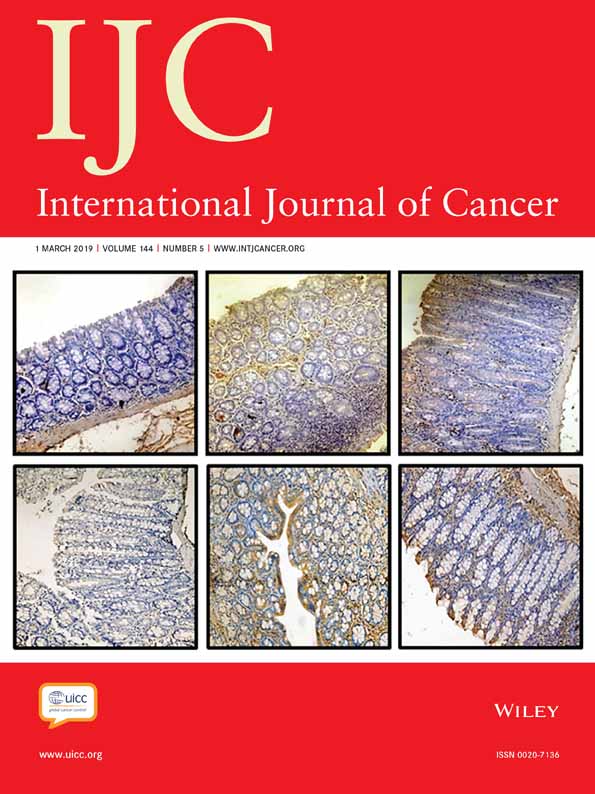A comprehensive methylation signature identifies lymph node metastasis in esophageal squamous cell carcinoma
Abstract
Treatment modalities in esophageal squamous cell carcinoma (ESCC) depend largely on lymph node metastasis (LNM) status. With suboptimal detection sensitivity of existing imaging techniques, we propose a methylation signature which identifies patients with LNM with greater accuracy. This would allow precise stratification of high-risk patients requiring more aggressive treatment from low-risk ESCC patients who can forego radical surgery. An unbiased genome-wide methylation signature for LNM detection was established from an initial in silico discovery phase. The signature was tested in independent clinical cohorts comprising of 249 ESCC patients. The prognostic potential of the methylation signature was compared to clinical variables including LNM status. A 10-probe LNM associated signature (LNAS) was developed using stringent bioinformatics analyses. The area under the curve values for LNAS risk scores were 0.81 and 0.88 in the training and validation cohorts respectively, in association with lymphatic vessel invasion and tumor stage. High LNAS risk-score was also associated with worse overall survival [HR (95% CI) 3 (1.8–4.8), p < 0.0001 training and 3.9 (1.5–10.2), p = 0.001 validation cohort]. In conclusion, our novel methylation signature is a powerful biomarker that identifies LNM status robustly and is also associated with worse prognosis in ESCC patients.
Abstract
What's new?
Lymph node metastasis (LNM) is the single most significant determinant of disease recurrence and prognosis in esophageal squamous cell carcinoma (ESCC). However, there currently is a paucity of reliable molecular signatures that can identify LNM is ESCC patients. Here, based on genome-wide methylation profiling of ESCC patients, the authors developed a comprehensive methylation signature to distinguish LNM cases. The lymph node metastasis-associated signature, or LNAS, showed high specificity in independent training and validation cohorts. In the training cohort, high LNAS risk score was further associated with worse disease-free survival. The novel signature could be clinically valuable, helping predict ESCC prognosis.




